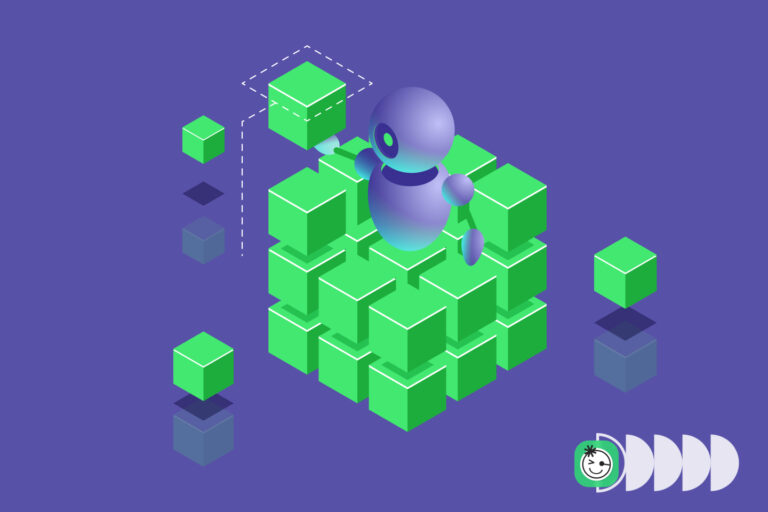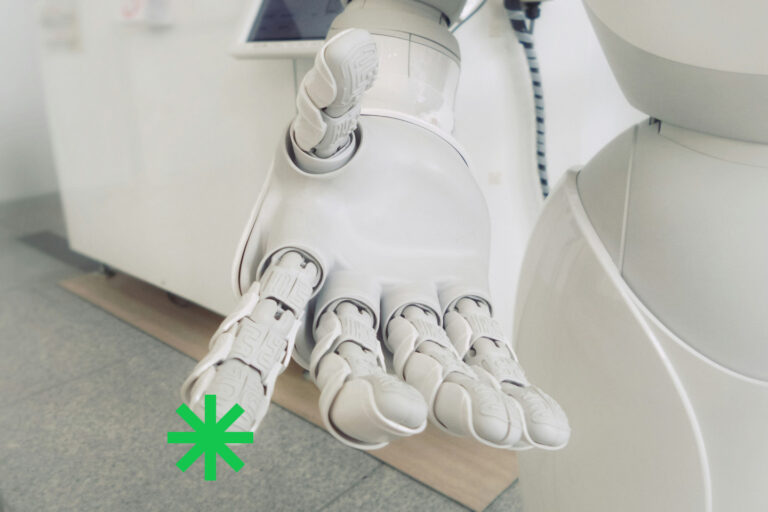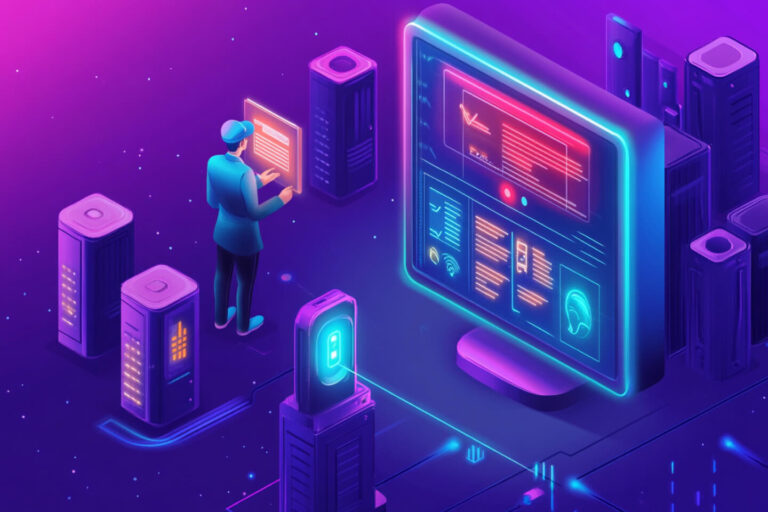Soft Skills That Make or Break Your Resume – Are You Showcasing Them Right?
When crafting a resume, most job seekers focus on listing technical abilities, degrees, and certifications. While those are important, they’re not always what lands you the job. In today’s hiring landscape, soft skills on your resume can make the real difference between getting noticed and getting overlooked.
Employers aren’t just looking for someone who can do the job — they want someone who can thrive in their workplace. Skills like communication, problem-solving, adaptability, and leadership often weigh just as heavily as your technical expertise. But here’s the catch: simply listing “strong communicator” or “team player” on your resume won’t cut it anymore. Hiring managers — and increasingly, AI job search tools — want to see proof.
With artificial intelligence playing a larger role in the hiring process, AI job search tools now scan resumes for more than just buzzwords. They assess context, phrasing, and the way soft skills are presented. If your resume isn’t optimized to showcase these skills effectively, you might be missing out on job opportunities without even realizing it.
So, how do you highlight your soft skills in a way that both recruiters and AI job application systems recognize? In this article, we’ll break down the soft skills that matter most, how to showcase them without sounding generic, and how AI for job search is reshaping the hiring process.
Why Soft Skills Matter More Than Ever in 2025
For years, job seekers have been told that hard skills — technical expertise, industry knowledge, and certifications — are the key to landing a job. And while those skills certainly matter, they don’t tell the full story of what makes a candidate truly successful in a role. Soft skills on your resume can be the deciding factor between two equally qualified candidates.
Employers today are looking for more than just technical proficiency. They want employees who can collaborate effectively, adapt to change, and navigate complex challenges with confidence. As businesses continue to evolve, hiring managers increasingly recognize that soft skills are not just “nice to have” — they are essential.
The Growing Demand for Soft Skills
With workplaces becoming more dynamic, employers value candidates who can thrive in fast-paced, ever-changing environments. In fact, a 2024 LinkedIn report found that 92% of recruiters consider soft skills just as important as hard skills — if not more.
But why is this shift happening? Several key trends are driving the demand for soft skills:
- The Rise of Remote and Hybrid Work
The ability to self-manage, communicate effectively online, and stay motivated without direct supervision is now a top priority for employers. Soft skills like time management, adaptability, and accountability have become essential. - Automation and AI Are Changing Job Roles
As AI and automation take over repetitive tasks, human workers are expected to focus on creativity, emotional intelligence, and problem-solving — skills that machines cannot replicate. - Team Collaboration Is More Important Than Ever
Even in highly technical fields, employees must work across departments, manage projects, and engage with clients or stakeholders. Employers seek candidates with strong communication, leadership, and interpersonal skills to keep teams running smoothly. - Customer and Client Expectations Are Evolving
Businesses know that success isn’t just about having a good product or service — it’s also about how employees interact with customers, solve problems, and maintain relationships. Employees who excel in customer service, empathy, and negotiation can make a huge impact.
The Role of AI in Identifying Soft Skills
With more companies relying on AI job search tools, the way resumes are screened has changed significantly. AI for job search doesn’t just scan for technical qualifications — it also looks for indicators of leadership, adaptability, and teamwork.
But here’s where many candidates get it wrong: AI job application systems don’t interpret resumes the way humans do. Instead, they analyze patterns in phrasing, structure, and contextual relevance. That means simply listing soft skills in a bullet-point format won’t make much of an impact.
For example, consider these two resume entries:
✅ Effective Example:
“Led a cross-functional team of 10 to successfully launch a new software product, improving customer satisfaction scores by 35% through enhanced user experience and streamlined workflows.”
❌ Ineffective Example:
“Strong leadership and teamwork skills.”
In the first example, the candidate doesn’t just claim to have leadership skills — they demonstrate them with a concrete achievement. AI job search tools and recruiters alike will recognize the impact.
Why This Matters for Your Resume
Take a moment to think about how you present soft skills on your resume:
- Are they just listed, or do you provide evidence of their impact?
- Do you use action-oriented examples that highlight real contributions?
- Would an AI job application system recognize the strength of your soft skills?
If you’re unsure, don’t worry — up next, we’ll break down which soft skills employers care about most and how to showcase them effectively.
The Soft Skills Recruiters Are Looking For
Now that we’ve established why soft skills are essential, let’s dive into which ones matter most to recruiters in 2025. While every job has unique demands, certain soft skills are universally valued across industries.
The Top Soft Skills to Highlight on Your Resume
1. Communication & Emotional Intelligence
Strong communication skills are the foundation of any successful workplace. But communication isn’t just about speaking clearly — it’s about active listening, adapting your message to different audiences, and expressing ideas concisely.
Similarly, emotional intelligence (EQ) is critical in today’s work environment. Employees who can understand emotions — both their own and others’ — navigate workplace relationships more effectively, manage conflicts, and contribute to a positive company culture.
💡 How to showcase it on your resume:
Instead of writing “excellent communicator,” try something like:
✅ “Presented complex technical concepts to cross-functional teams, improving knowledge-sharing and reducing project turnaround time by 20%.”
2. Problem-Solving & Critical Thinking
Employers need people who can think on their feet and find creative solutions to challenges. Problem-solving skills show that you can analyze situations, consider different perspectives, and make data-driven decisions.
💡 How to showcase it on your resume:
✅ “Redesigned customer service workflows, reducing response times by 40% and increasing client retention by 25%.”
3. Adaptability & Growth Mindset
Change is the only constant in today’s job market. Companies need employees who can pivot quickly, learn new skills, and stay resilient in the face of uncertainty. A growth mindset — where you view challenges as opportunities to improve — is a key trait employers look for.
💡 How to showcase it on your resume:
✅ “Transitioned from traditional marketing to digital strategy, leading a new campaign that increased online engagement by 60%.”
4. Leadership & Teamwork
Even if you’re not in a managerial role, leadership skills matter. Taking initiative, inspiring others, and collaborating effectively within teams are all signs of leadership. Teamwork is just as essential — businesses thrive when employees work well together, regardless of hierarchy.
💡 How to showcase it on your resume:
✅ “Led a cross-functional team of 12 to develop a new internal software tool, reducing department-wide inefficiencies by 30%.”
5. Time Management & Self-Motivation
With remote work and flexible schedules becoming the norm, employers want to know you can manage your workload without constant supervision. Being able to set priorities, meet deadlines, and stay productive is a huge advantage.
💡 How to showcase it on your resume:
✅ “Independently managed a portfolio of 15+ clients, consistently meeting deadlines and exceeding revenue targets.”
How AI Job Search Tools Assess Soft Skills
You might be wondering — how do AI job search tools pick up on soft skills if they aren’t listed as technical qualifications? The answer lies in contextual analysis.
AI-driven hiring platforms don’t just scan for words like “communication” or “leadership” — they look at how you describe your experience. For example, AI for job search can detect if your resume includes action-oriented descriptions that demonstrate problem-solving, adaptability, and collaboration.
This means that generic soft skill listings aren’t enough — you need to incorporate them naturally into your experience and achievements. Otherwise, AI job application systems may overlook your potential, and recruiters might move on to the next candidate.
Effectively showcasing these skills requires more than just listing them — it’s about weaving them into your resume in a way that catches both human and AI attention. Let’s explore the best techniques to make that happen.

How to Showcase Soft Skills on Your Resume (Without Sounding Generic)
Now that you know which soft skills are in high demand, the next challenge is presenting them effectively on your resume. The mistake most job seekers make? Simply listing soft skills without demonstrating them.
Recruiters and AI job search tools aren’t looking for a collection of buzzwords — they want evidence that you’ve applied these skills in real-world situations. A resume that simply states “Excellent communicator, problem solver, and team player” doesn’t add much value. Instead, you need to prove these traits through your experiences, achievements, and the way you structure your resume.
The Right Way to Highlight Soft Skills on Your Resume
Here are four key strategies to make your soft skills shine:
1. Show, Don’t Tell – Use Achievement-Based Examples
Rather than listing “strong leadership skills,” provide quantifiable proof of how you’ve led projects, mentored colleagues, or driven business results.
🔹 Weak Example: Strong leadership skills and ability to work in a team.
✅ Better Example: Led a team of five designers and developers to successfully launch a new mobile app, increasing user engagement by 40% within three months.
Numbers and specific outcomes bring your soft skills to life and make them measurable.
2. Weave Soft Skills Into Your Experience Section
The best place to highlight soft skills isn’t in a separate “Skills” section — it’s within your work experience descriptions. This helps AI job search tools and recruiters recognize them in the right context.
For example, if adaptability is one of your strengths, rather than just saying “adaptable to change,” describe how you’ve successfully navigated challenges:
✅ “Quickly adapted to a company-wide shift to remote work, implementing new virtual collaboration tools that improved team productivity by 25%.”
This approach ensures AI for job search picks up on your adaptability without needing an explicit keyword.
3. Use Action-Oriented Language
AI-driven hiring tools and recruiters alike favor dynamic, results-driven language. Starting your bullet points with action verbs makes your contributions stand out.
Instead of:
❌ “Good at problem-solving and critical thinking.”
Try:
✅ “Analyzed customer feedback and implemented a new support workflow, reducing response time by 35% and increasing customer satisfaction ratings.”
4. Tailor Your Soft Skills to the Job Description
Each job has a unique set of soft skills that are most relevant. Many AI job application systems scan for alignment between the job posting and your resume — so make sure your soft skills match the role’s requirements.
How to do it:
- Read the job description carefully. Identify the soft skills mentioned.
- Align your work experience and achievements to reflect those skills.
- Make sure your phrasing naturally integrates those skills without forced repetition.
For example, if a job post emphasizes “collaboration and leadership”, highlight times you successfully led a team or worked cross-functionally to achieve goals.
How AI Job Search Tools Evaluate Soft Skills
You might be wondering — how do AI job search tools actually detect soft skills if they’re not explicitly listed as keywords? The answer lies in natural language processing (NLP).
AI hiring systems analyze resumes by looking for:
- Action-oriented phrasing that suggests real-world application of soft skills.
- Contextual relevance — where and how soft skills appear in your work history.
- Patterns in achievements that indicate teamwork, leadership, adaptability, or problem-solving.
If your resume includes specific examples of collaboration, adaptability, and leadership, an AI job search system is far more likely to flag you as a strong candidate.
Why This Matters
In today’s hiring landscape, your resume needs to impress both human recruiters and AI-driven screening tools. By integrating soft skills naturally within your experience section, using action-driven language, and backing up your claims with measurable results, you’ll make a stronger impact.
Next, let’s explore how AI-powered tools can help optimize your resume — ensuring your soft skills are recognized and valued.
Can AI Detect Soft Skills? The Role of AI in Resume Screening
As artificial intelligence becomes a bigger part of hiring, many job seekers wonder: Can AI actually recognize soft skills on your resume? The short answer? Yes — but not in the way you might think.
Traditional hiring focused on recruiters manually reviewing resumes, looking for key qualifications and relevant experience. But now, with AI job search tools screening thousands of applications at lightning speed, the process has changed. AI doesn’t “read” resumes like a human does — it analyzes patterns, phrasing, and contextual clues to assess a candidate’s soft skills.
How AI Job Search Tools Identify Soft Skills
AI-powered hiring systems use natural language processing (NLP) and machine learning to detect whether a candidate demonstrates skills like leadership, adaptability, and teamwork. But instead of scanning for soft skills in a dedicated “Skills” section, AI looks at how these skills are reflected throughout your resume.
For example, consider these two entries:
🔹 Weak Example: Great team player with strong problem-solving skills.
✅ Better Example: Collaborated with a cross-functional team of engineers and marketers to launch a product feature, increasing customer engagement by 30%.
In the second example, AI picks up on collaboration, problem-solving, and leadership based on the action-oriented description and quantifiable outcome.
What AI Looks for in a Resume:
- Context & Relevance – AI scans your work experience, achievements, and phrasing to determine if soft skills are truly part of your expertise.
- Action Verbs & Results – Resumes with action-driven language (“led,” “managed,” “implemented”) and measurable outcomes score higher in AI job application systems.
- Alignment with Job Description – AI cross-checks the skills mentioned in the job posting with the skills embedded in your resume. The more natural the match, the better your ranking.
How to Optimize Your Resume for AI Without Losing the Human Touch
Since AI job search tools are now a critical part of modern hiring, your resume needs to strike a balance — optimized for AI, yet still engaging for human recruiters. Here’s how:
✅ Use achievement-based descriptions: AI looks for results-driven language, but hiring managers also want to see impact. Example:
- “Led a customer support team that reduced complaint resolution time by 45%, improving overall satisfaction scores.”
✅ Avoid keyword stuffing: Instead of forcing soft skill keywords, naturally weave them into your responsibilities and successes.
✅ Format strategically: AI struggles with overly creative layouts. Stick to clear headings (Work Experience, Education, Skills) and avoid excessive graphics.
✅ Leverage AI resume checkers: Some platforms, like JobHire.AI, help optimize resumes by analyzing how well soft skills are demonstrated and providing suggestions to improve your chances.
The Future of AI in Hiring: What Job Seekers Should Know
AI in hiring isn’t going anywhere — it’s only getting smarter. Many companies now use AI for job search screening, application tracking, and even interview assessments. As AI continues to evolve, it will likely become even more adept at detecting communication style, leadership potential, and cultural fit from resumes and cover letters.
But here’s the good news: The best resumes — those that tell a compelling story through achievements — will always stand out. By focusing on demonstrating your soft skills through measurable impact, you’ll increase your chances of getting past AI filters and impressing real decision-makers.
Next, we’ll look at how you can leverage AI tools to fine-tune your resume and streamline your job search — helping you stand out in a competitive market.
Using AI to Improve Your Resume and Job Search
In a world where technology is transforming hiring, job seekers now have a powerful ally: AI job search tools. Instead of relying solely on traditional methods — tweaking resumes manually and applying to countless jobs — candidates can now use AI to apply for jobs more efficiently and optimize their applications for better results.
How AI Can Help You Craft a Stronger Resume
AI-powered tools can do more than just scan resumes — they can analyze, enhance, and tailor your resume to improve your chances of landing interviews. Here’s how:
✅ AI Resume Optimization – Platforms like JobHire.AI can assess how well your resume highlights soft skills, suggest improvements, and ensure it aligns with job descriptions.
✅ Keyword Matching – AI for job search scans job postings and compares them with your resume to make sure you’re including the right soft skill keywords in a natural, context-driven way.
✅ Grammar & Clarity Enhancements – AI tools help refine your resume’s phrasing to make it more impactful and readable — helping both human recruiters and AI job application systems understand your strengths better.
✅ Instant Feedback – AI-powered resume checkers can provide real-time feedback on formatting, structure, and effectiveness, ensuring your resume isn’t being overlooked by hiring algorithms.
Using AI to Apply for Jobs More Effectively
AI isn’t just reshaping how resumes are evaluated — it’s also helping job seekers apply smarter, not harder. Instead of sending out generic applications, AI job search tools allow candidates to strategically target roles that best fit their skills.
Here’s how you can use AI to apply for jobs more effectively:
🔹 AI-Powered Job Matching – Instead of scrolling through endless job boards, AI-based platforms analyze your skills and suggest the most relevant openings — saving you time and increasing your chances of success.
🔹 Application Tracking & Customization – AI tools can track job applications, recommend adjustments to your resume for each position, and even generate personalized cover letters.
🔹 AI-Driven Interview Prep – Some AI job search tools can analyze job descriptions and predict the types of questions you’ll likely be asked, helping you prepare stronger responses.
Why Combining AI with a Human Touch is the Key to Success
While AI for job search can make the process faster and more efficient, it’s important to remember that hiring decisions are still made by people. AI can get you through the screening phase, but your personal storytelling, emotional intelligence, and ability to connect with recruiters will ultimately secure the job offer.
To strike the right balance:
- Use AI to optimize and streamline your resume, but make sure it still sounds like you.
- Leverage AI insights to tailor applications for each role, instead of mass-applying.
- Prepare for interviews beyond AI predictions — practice showcasing your soft skills in real conversations.
Final Thoughts: Embracing AI to Elevate Your Job Search
The job market is more competitive than ever, but technology has made it easier to stand out. By understanding how AI job search tools evaluate soft skills, crafting a resume that appeals to both AI and human recruiters, and using AI to apply for jobs more strategically, you can increase your chances of landing the right role faster.
At the end of the day, soft skills remain one of the most valuable assets a candidate can bring to a job. With AI and the right approach, you can ensure they don’t go unnoticed.







